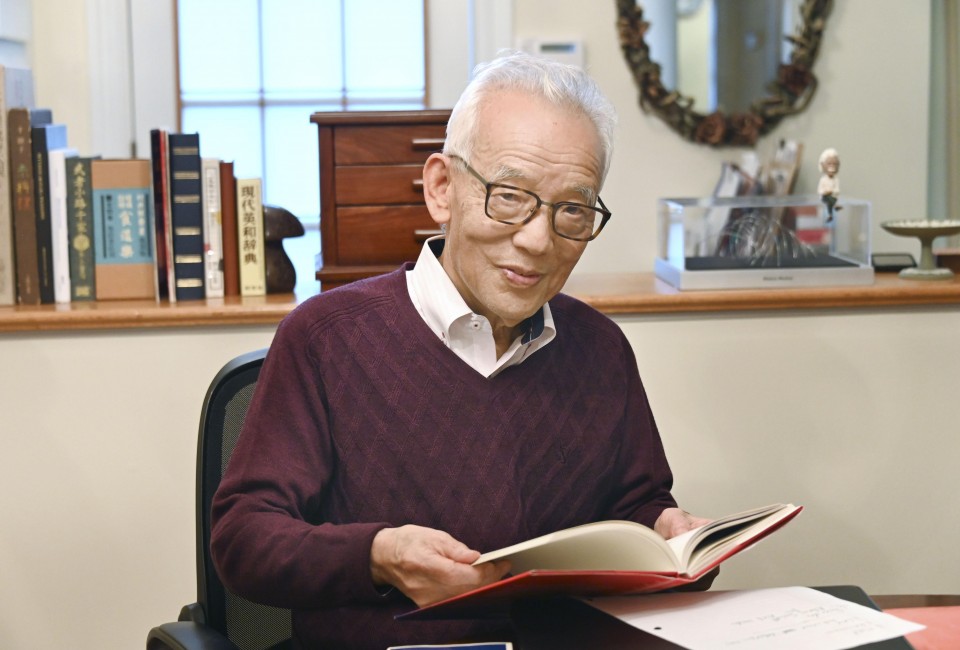Japan-born scientist Manabe, German, Italian win Nobel physics prize
Japanese-born American Syukuro Manabe, 90, has won a share in this year's Nobel Prize in physics for modeling the Earth's climate and reliably predicting global warming, the Royal Swedish Academy of Sciences said Tuesday, sharing the prize with two other scientists.
Italian Giorgio Parisi, 73, was awarded half the prize, given "for groundbreaking contributions to our understanding of complex systems," with the other half shared by Manabe, a senior meteorologist at Princeton University, and Klaus Hasselmann, 89, of Germany.
Awarding the physics prize to research on climate change is unusual and reflects how interest in the issue has increased globally in recent years. The announcement came before a U.N. climate conference known as COP26 opens at the end of this month in Glasgow, Scotland.

Screenshot taken from a video on the official website of the Nobel Prize shows Syukuro Manabe (L), Klaus Hasselmann (C) and Giorgio Parisi. (Kyodo)
"The discoveries being recognized this year demonstrate that our knowledge about the climate rests on a solid scientific foundation, based on a rigorous analysis of observations," Thors Hans Hansson, chairman of the Nobel Committee for Physics, said in a statement.
Manabe, who earned a doctorate of philosophy from the University of Tokyo, received the award for laying the groundwork for the development of current climate models, demonstrating how increased levels of carbon dioxide in the atmosphere lead to increased temperatures at the surface of the Earth, the statement said.
Manabe, who moved to the United States in 1958 to take a job at the U.S. Weather Bureau, now called the National Oceanic and Atmospheric Administration, told reporters who gathered at his home in Princeton, New Jersey, that he is very honored to receive the Nobel prize as a climate physicist, which is unprecedented.
"Nowadays, many events such as flooding and droughts have happened in Japan and around the world," which have been associated with global warming, he said through his family. "I am glad that everybody has recognized that."
His climate model explored the interaction between solar radiation and the vertical transportation of air masses through convection, while also looking into heat contributed by the cycle of the water.
Hasselmann, affiliated with the Max Planck Institute for Meteorology, then came up with a model that "links together weather and climate" and developed methods used to prove that human emissions of carbon dioxide have led to increased temperatures, it said.
Parisi from Sapienza University of Rome was awarded for discovering the "hidden patterns in disordered complex materials," making it possible to describe and understand different materials and phenomena in a number of fields, including physics, mathematics and biology.
Due to the coronavirus pandemic, the award ceremony will be held online on Dec. 10. They will receive their medals in their country of residence.
Manabe was born in Ehime Prefecture in western Japan, and has also worked for Japan's now-defunct Science and Technology Agency and as a guest professor at Nagoya University.
Japanese Prime Minister Fumio Kishida lauded Manabe's achievement, saying, "His discovery based on innovative ideas has contributed greatly to sustainable development of human society and the international community, and it was valued by the world."




